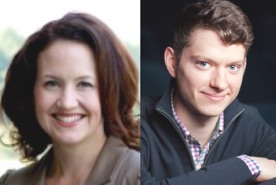Darcy DeLoach, Ph.D., MT-BC and Michael Detmer, M.ME., MT-BC
When deciding a treatment approach for children with ASD, the differences between interdisciplinary and transdisciplinary teams yield different intervention environments. In this podcast differences between the two are discussed with examples of clinical approaches and client outcomes given.
Resources:
-
Choi, B. C. K., & Pak, A. W. P. (2006). Multidisciplinarity, interdisciplinarity, and transdisciplinarity in health research, services, education and policy: 1. Definitions, objectives, and evidence of effectiveness. Clinical and Investigative Medicine, 29(6). 351-364.
-
Nancarrow, S. A., Booth, A., Ariss, S., Smith, T., Enderby, P., & Roots, A. (2013). Ten principles of good interdisciplinary team work. Human Resources for Health, 11, 19.
-
Newhouse, R. P., & Spring, B. (2010). Interdisciplinary evidence-based practice: Moving from silos to synergy. Nursing Outlook, 58(6), 309-317.
About the Authors:
Dr. DeLoach is the director of music therapy at the University of Louisville. One of her clinical and research interest areas is serving individuals with ASD. She has presented on this topic nationally and internationally. She is joined in this podcast by Michael Detmer, an instructor and clinical supervisor at the University of Louisville who also provides clinical services with Norton HealthCare. Darcy and Michael have provided music therapy services at the University of Louisville Autism Center, co-treating small group sessions with the psychologists and occupational therapists. Contact: darcy.deloach@louisville.edu
Suggested Citation:
DeLoach, D., & Detmer, M. R. (Author). (2015, September 1). Interdisciplinary versus transdisciplinary integrative care within music therapy for children with ASD. Retrieved from imagine.musictherapy.biz
